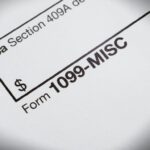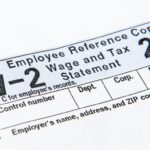Doordash has made a name for itself as a decent side income for those looking to make some extra income. However, many people forget about one important part of working for Doordash – taxes.
Drivers are considered independent and contractors and must pay their own taxes. It’s still worth working for Doordash after accounting for taxes as you will likely pay less in taxes for each dollar earned driving for Doordash due to the deductions available to contractors.

The rest of this article will go into detail on the tax implications of working for Doordash and the true net salary of working for Doordash.
Note: This article is not tax advice and for educational purposes only.
Is Doordash Worth It After Taxes?
Yes, it’s still worth it to drive for Doordash even after taxes. It’s important to note that this does vary by jurisdiction as every state, and even some cities, have different tax codes.
First of all, Doordash drivers are independent contractors, which means the company (Doordash) does not withhold their earnings and drivers must pay self-employment tax. They pay the driver a gross salary and it’s the responsibility of the driver to report their earnings, and pay their taxes, to the IRS.
In that sense, the driver pays the same amount of taxes on their Doordash income as they would on W-2 income, but has to write a check to the IRS themselves. Things are better for Doordash drivers because independent contractors have a variety of deductions available that greatly lower their tax liability. Common Schedule C deductions for Doordash drivers include, but are not limited to, the following (Source: IRS):
- Mileage OR gas, repairs, and depreciation
- Phone bill (partial)
- Car Insurance (partial)
- Tolls
- Parking fees
- Interest on your car loan (partial)
Drivers also pay no income taxes on income under $12,400 (or more depending on filing status) due to the standard tax deduction for self-employed people.
These deductions mean that Doordash drivers can greatly reduce their tax liability. It’s not uncommon for Doordash drivers to pay 10% taxes or even no taxes if they deduct a lot of expenses.
What Taxes Does a Doordash Driver Pay?
The taxes a Doordash driver must pay include the following:
- Self-employment tax (15.3%)
- Federal income tax (varies based on your tax bracket)
- State Income Tax (if applicable)
Again, the caveat to this is that a Doordash driver is an independent contract, which means they can write off any expenses used to do their job. Taxes are only paid on net income (income minus expenses).
For instance, if a Doordash driver earns $2,000 in gross earnings from Doordash and deducts $1,000 for expenses (mileage, phone bill, phone holder, hot bags, etc.), then they will only pay the self-employment tax on the $1,000 and no federal income tax due to the standard deduction.
Final Thoughts
To summarize, it’s worth driving for Doordash, even after paying taxes, if you deduct your expenses. The large amount of deductions available greatly limits the tax liability of driving for Doordash. We still recommend hiring a tax professional to help you with your taxes, though.
Taxes are complicated and everyone has a unique situation. It’s strongly recommended to hire a tax professional to help with your tax situation.








